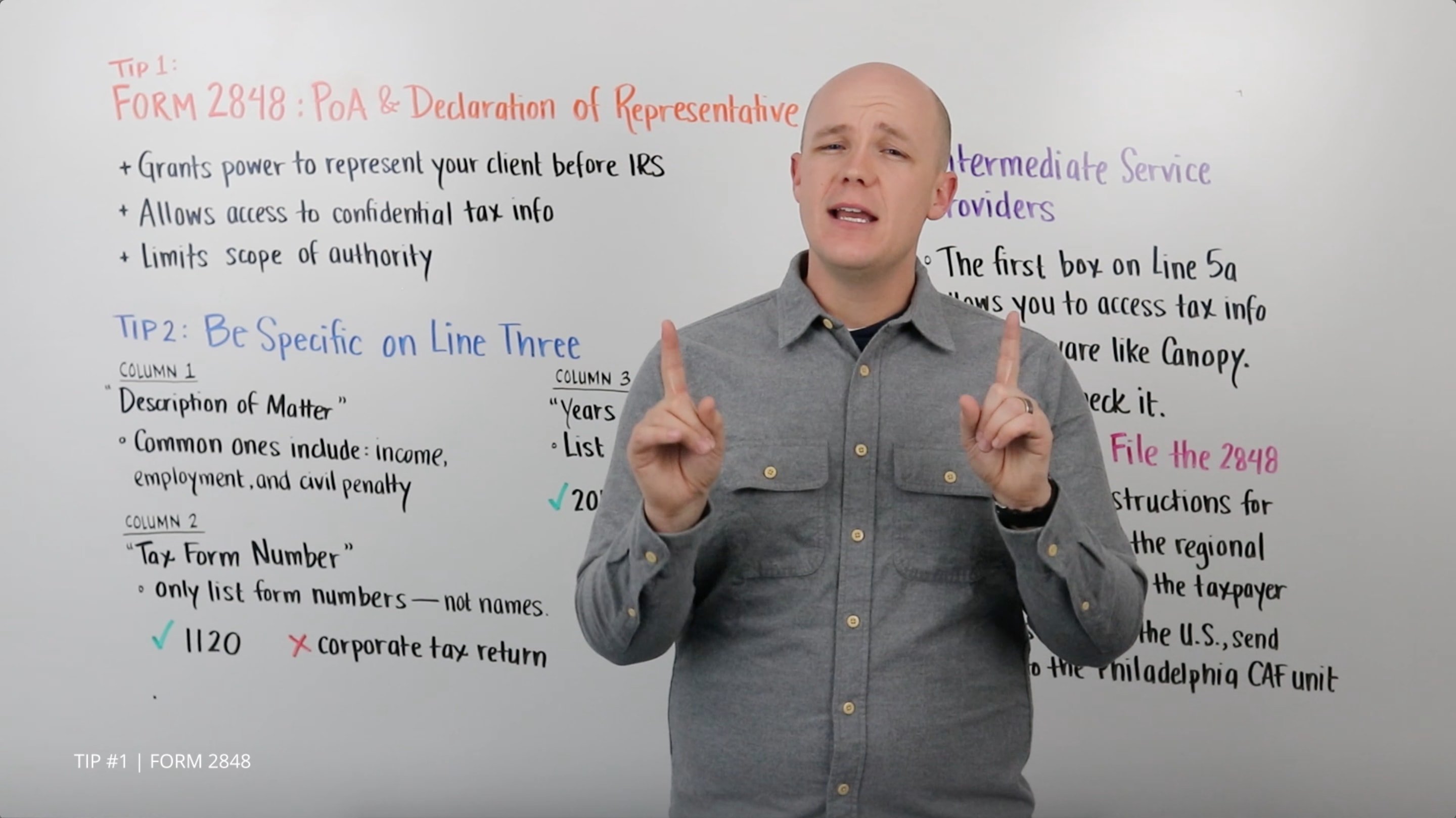Tax controversy is an area that is becoming increasingly hostile and complex. If your client is involved in a tax dispute, they need the best possible team representing them. That best possible team—and the one that provides the client with the greatest service and the greatest protection—is a tax professional (Enrolled Agent, CPA, or tax preparer) and a tax attorney working together, each handling the tasks that they excel at and have been trained to perform.
Here are four reasons why collaborating with an attorney can not only improve the services that you provide to your clients but can also enhance your practice:
1. You can take advantage of the attorney-client privilege
The IRS frequently uses its summons authority to compel accountants to testify against their clients. Since you don’t have attorney-client privilege, these summonses put you in the very unhappy position of either having to provide evidence that will damage the business and/ or reputation of a client or going to prison for contempt if you don’t.
The last thing you need is for word to get around that one of your clients went to prison because you helped to put them away! But how does an accountant serve their clients with the same attorney-client privilege that an attorney does?
The answer is through a Kovel Agreement (named after United States v. Kovel, 296 F.2d 918 [2d Cir. 1961]). This is where instead of hiring an accountant directly, the taxpayer hires a tax attorney who in turn hires the accountant to work on the attorney’s case. The result is the same as when an attorney hires a translator or other non-legal professional—whatever the taxpayer says to that person will be protected by the attorney-client privilege because they have become a necessary third party to the case.
2. With tax work, two heads are often better than one
The tax work of the accounting and legal professions is very different. While a lawyer may be able to brilliantly argue why their client is entitled to take a specific deduction, they turn to the accountant to substantiate the numbers. For example, ask a tax attorney to identify the most common problem for small businesses, and they’ll say: “The books are off. That’s why we had so much trouble.” Although the legal principles may be clear to them, attorneys tend to have a terrible time deciphering the numbers— many will jokingly admit that they are even challenged by balancing their own checkbook! The last thing they want to do is get involved in the accounting of a business. The majority of accountants, in turn, would rather run the numbers than argue principle with the IRS. They aren’t interested in getting lost in case law, and confrontation is generally not part of their practice.
In all tax matters, both the theory of law and the numbers are important. Working together, an attorney and an accountant can cover all the bases and achieve the best possible outcome for their client.
3. Your client can benefit from the attorney’s advantages in negotiation
If you’re an accountant and you don’t agree with the determination of an auditor, what can you do? You can appeal to the IRS appeals officers. An attorney can also do that, or they can pay a $60 filing fee and appeal directly to the tax court—the tax court, in turn, will automatically refer the case back to the very same appeals officers that the accountant had appealed to directly. So why take this circuitous path and spend the extra $60? For two very good reasons:
- The burden of proof for any new issues shifts from the taxpayer to the government, so most appeals officers won’t raise new issues—an important consideration because appeals officers are far more experienced and knowledgeable than auditors and are more likely to identify points favorable to the government.
- Even for the same types of cases, the settlements are far more favorable to the taxpayer than those that go directly to appeal. This ability to go to tax court— even if the intent is not to litigate—is just one example of how attorneys have a distinct advantage in negotiating with the government. We have found that taxpayers usually fare best by having their accountant assemble the evidence, prepare the work papers, and determine the best way to show the receipts, and by having their attorney file the court papers to get to the appeals officer and negotiate the settlement.
4. Referrals!
A good working relationship between accountants and attorneys can also lead to a lot of referrals. The attorney can refer a client who just emerged from a challenging business tax audit to the accountant, to ensure that they maintain good books and records in the future. The accountant, in turn, can refer their client to the attorney for an estate plan, pension analysis, or Section 199A qualification.
A win-win-win situation
The fact that attorneys and CPAs often provide overlapping services is no reason to view our two professions as being at odds with each other. When we work together, we are both better off and our clients are better off.
About Steve Moskowitz
Before becoming a tax attorney, Steve Moskowitz was a practicing CPA in corporate America and also worked for a “Big 8” now “Big-4” CPA firm. He has also taught tax, law and accounting in law school, graduate school and university. Steve now heads the tax law firm of Moskowitz LLP in the San Francisco financial district.
Looking to gain clients who need tax representation services? Check out these four suggestions.







Get Our Latest Updates and News by Subscribing.
Join our email list for offers, and industry leading articles and content.